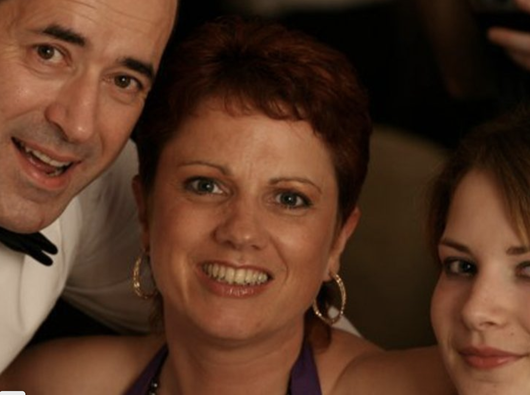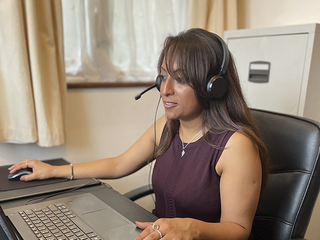Monitoring your response to follicular lymphoma treatment
To understand how well your treatment for follicular lymphoma has worked, you’ll need to have more tests and scans. Your doctor will explain your results to you and tell you what to expect. This page contains general information about what might happen next.
Key things to know
- After treatment, your doctor will do some tests to see how well the treatment has worked. Most people respond well to their first round of treatment, but some may need to have more treatment.
- If the follicular lymphoma doesn’t respond to treatment, this is called refractory disease. If this happens to you, your doctor might repeat the staging tests to see if the lymphoma is behaving any differently. You may also be able to try a different treatment, or join a clinical trial.
- If treatment works but the follicular lymphoma later comes back, this is called relapse. Lots of people worry about relapsing, but it’s usually impossible to know if or when it will happen. If it does, most people are offered more treatment.
Understanding your test results
After a round of treatment has finished, your doctor will do some of the same tests and scans as you had when you were diagnosed. This helps them to see how well the treatment has worked, and if you need any more treatment.
Your results are likely to fall into one of four categories:
- Complete remission, also called complete response – This means that all or most of the lymphoma has gone, and no or very few cancerous cells can be still be detected.
- Partial remission, also called partial response – This means there is a clear reduction in the number of lymphoma cells (by more than 50%) but they are still able to be detected.
- Stable disease – This describes a smaller reduction in the number of lymphoma cells (less than 50%).
- Progressive disease – This means that the lymphoma cells have grown, and the treatment so far hasn’t been effective.
Most people will have a complete or partial response after their first round of treatment. If your doctors decide you need more treatment, your results will help them recommend what to try next. This may be a larger dose of the treatment you’ve already tried, but it's more likely to be something new.
It’s also common for doctors to recommend joining a clinical trial, if there is one suitable for you. Find out more about clinical trials and research.
You might like to invite someone to go along with you when you get your results. Most people say their appointment is a blur, and they appreciate having moral support from a friend or family member no matter how good or bad their news is. Having someone else there can also help you to remember what your doctor says, and prompt you to ask any questions you might have forgotten about.
Refractory disease
Sometimes, follicular lymphoma won’t respond to first line treatment. This is called refractory disease. It can be very hard to hear, and it’s normal to feel anxious about what happens next.
You may be able to have the same treatment again in a different dose, but it’s more likely your doctor will recommend trying something else. This could include joining a clinical trial. Clinical trials are currently the only way to try new treatments that are not yet available for general use, but it’s your choice whether you go on one or not.
Your doctor can tell you more about any trials that are suitable for you. They will also explain what to expect if you can’t have any more treatment, or if you choose not to have treatment.
"My coping strategy after relapsing was about facing my fear. I had a lightbulb moment where I thought, 'Right, I’ve been given another chance.' So, for me, it was, right, get out, do something constructive with your life."
Donna, living with follicular lymphoma since 2009. Read Donna's story about how she coped with anxiety during a relapse in 2018.

Relapse
If your treatment works, but the follicular lymphoma comes back at a later date, this is called a relapse.
It’s likely that follicular lymphoma will relapse at some point, but there is usually more treatment you can try if this happens. This is called second line treatment. Your doctor will talk to you about your options for second line treatment, which can depend on things like:
- where the lymphoma has developed
- how long it’s been since your last treatment
- what type of treatment you had
- how you originally responded to treatment.
Lots of people worry about relapsing, but it’s impossible to know if you will relapse or how long it will be before you do. Our mind and emotions page has suggestions about how to cope with anxiety about your future health, and we’ve also put together some information about living well with blood cancer that might help.
If you’re struggling to cope with your mental health, you don’t have to suffer alone. You can ask your doctor to refer you for counselling, or complete a self-referral form online if you live in England. You might also want to look at paying for private counselling – you can find a list of registered counsellors and therapists at the British Association of Counsellors and Psychotherapists (BACP).
Many people with follicular lymphoma have told us that speaking to our Support line helps. You may also want to join our online community forum, where you can connect with others who are in a similar situation and who understand what you’re going through.
"A few months after finishing treatment, I was getting quite stressed, and it was all getting too much. Someone suggested I talk to a psychotherapist, and I agreed to try it. That really helped."
Malcolm, living with follicular lymphoma since 2018. Read more real stories from people affected by blood cancer.

Transformation
If you relapse soon after treatment, or if you have refractory disease, your doctor may want to repeat your staging tests. This is because there is a small risk of relapsed or refractory follicular lymphoma transforming (changing) into to a higher grade, faster growing non-Hodgkin lymphoma such as diffuse large B-cell lymphoma (DLBCL).
Transformation happens in a very small number of people, and is treated differently to follicular lymphoma. The treatment you have will aim to cure the high-grade non-Hodgkin lymphoma, but you may still have the follicular lymphoma.
Your doctor may also tell you that your follicular lymphoma "is starting to behave like" a high grade non-Hodgkin lymphoma.
If you are told you have transformed non-Hodgkin lymphoma, or that your follicular lymphoma is behaving like a high grade non-Hodgkin lymphoma, you may want to order our booklet about DLBCL and other high grade non-Hodgkin lymphomas. You can also call us on 0808 2080 888 if you're unsure about anything, or have questions about your diagnosis. Our Support line nurses will be happy to talk to you and explain things in more detail.

Worried about anything or have questions?
If you need someone to talk to, please don't hesitate to contact our Support Service by phone or email.
